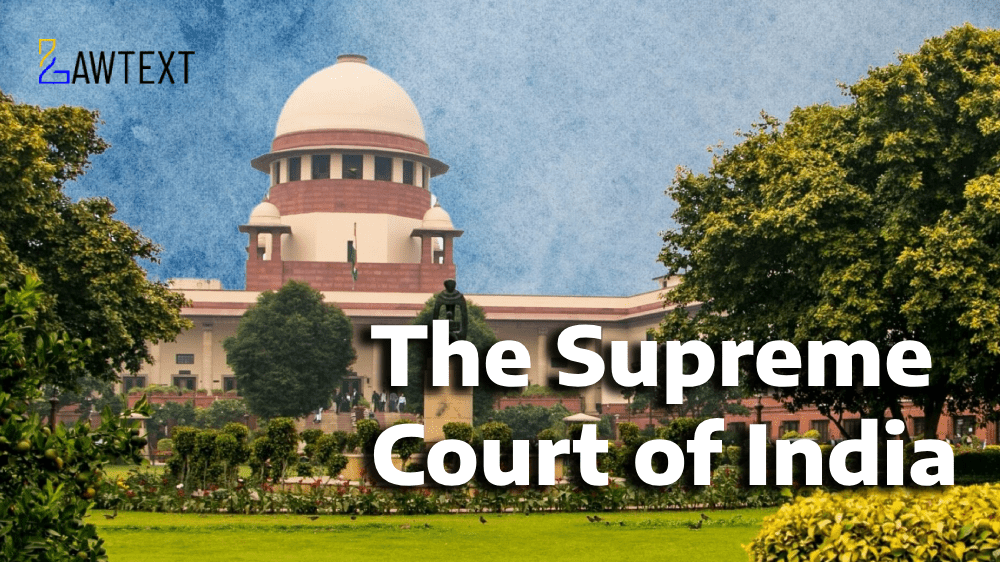CASE NOTE & SUMMARY
The Supreme Court acquitted Accused Nos. 3 (Saheb s/o Maroti Bhumre) and 5 (Sitaram Pandurang Gabare), who were convicted under Sections 148, 302, and 149 of the Indian Penal Code (IPC). The Court found inconsistencies in the prosecution's evidence, particularly the testimony of the widow, Janakibai (PW-1), who was the sole eyewitness. The Court observed that her testimony was contradictory and embellished, raising reasonable doubt about the appellants' involvement. After serving more than 10 years in prison, the appellants were granted the benefit of the doubt and acquitted.
-
Background:
- Incident: On 08.04.2006, Madhavrao Krishnaji Gabare and his family were attacked at their home in Village Singi, Maharashtra, resulting in his death and injuries to several others. Political rivalry was stated to be the motive.
- Prosecution's Case: The widow, Janakibai (PW-1), alleged that the accused attacked her husband and others with axes and sticks during a power cut. Fifteen witnesses were presented, but the case relied heavily on her testimony.
-
Trial Court:
- The Additional Sessions Judge, Basmathnagar, convicted nine of the twenty-two accused under Sections 148, 302, and 324 read with Section 149 IPC, sentencing them to imprisonment and fines.
-
High Court Appeal:
- The Bombay High Court acquitted six of the nine convicted, sustaining the convictions of Accused Nos. 2, 3, and 5. The conviction under Section 324 IPC was dismissed due to the lack of specific charges.
-
Supreme Court Appeal:
- Key Witness Testimony: The Supreme Court found inconsistencies in Janakibai’s (PW-1) testimony, particularly concerning the sequence of events, the involvement of various accused, and the lighting conditions during the attack.
- Benefit of Doubt: The Court noted that Janakibai's account had numerous contradictions and lacked corroboration, making it impossible to rely solely on her testimony for conviction. The Court also highlighted that the alleged political rivalry and presence of a large group of attackers created further uncertainties.
- Acquittal: Given the lack of reliable evidence and the appellants' long incarceration, the Court extended the benefit of doubt to the accused, acquitting them of the charges under Sections 148 and 302 IPC read with Section 149 IPC.
Acts and Sections Discussed
- Section 148 IPC: Rioting, armed with deadly weapon
- Section 302 IPC: Punishment for murder
- Section 324 IPC: Voluntarily causing hurt by dangerous weapons or means
- Section 149 IPC: Unlawful assembly, guilty of offense committed in prosecution of common object
Ratio Decidendi
The Supreme Court acquitted the appellants on the grounds that the prosecution failed to establish guilt beyond a reasonable doubt. The sole eyewitness testimony (PW-1) was found to be inconsistent, and the absence of corroborating evidence rendered it unreliable. The maxim Falsus in uno, falsus in omnibus (false in one thing, false in everything) was invoked, leading to the conclusion that where contradictions cannot be separated, the accused must be acquitted.
Subjects:
#MurderTrial #CriminalAppeal #EyewitnessTestimony #ReasonableDoubt #Acquittal
Citation: 2024 LawText (SC) (9) 182
Case Number: CRIMINAL APPEAL NOS. 313-314 OF 2012
Date of Decision: 2024-09-18
Case Title: Saheb, s/o Maroti Bhumre etc. Versus The State of Maharashtra
Before Judge: (SANJAY KUMAR J. , ARAVIND KUMAR J.)
Appellant: Saheb, s/o Maroti Bhumre etc.
Respondent: The State of Maharashtra

